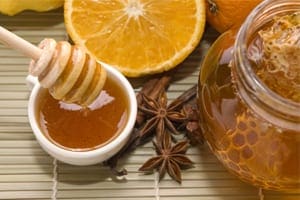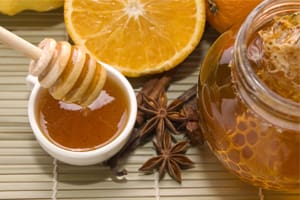statFor some women, it's about making an elegantement at special events or being a couple…

Is Honey Good for You?
 It is not just a gooey, sticky, golden syrup that tastes good on pancakes and your morning oatmeal. It has been used for centuries by healers from many different cultures across the world for everything from treating coughs to healing wounds. But is honey really good for you? Recent medical research has found that those ancient physicians may just have been right all along.
It is not just a gooey, sticky, golden syrup that tastes good on pancakes and your morning oatmeal. It has been used for centuries by healers from many different cultures across the world for everything from treating coughs to healing wounds. But is honey really good for you? Recent medical research has found that those ancient physicians may just have been right all along.
In its raw form, it is a powerful source of antioxidants, along with having antibacterial, antiviral and antifungal properties. Its antioxidants keep free radicals from causing oxidative damage to the body’s cells. In a study done at the University of California, Davis, researchers gave four tablespoons of buckwheat honey daily to 25 study subjects over a period of 29 days, and their results found a positive link between honey consumption and increased levels of antioxidant polyphenols in their blood.
It promotes faster healing of wounds and burns. Its hygroscopic (water-attracting) properties help heal wounds by drawing out excess fluid. As bacteria thrive in wet environments, the application of honey helps keep wounds drier, and thus freer from bacteria. An Indian study found that it to be more effective for treatment of burns than the standard medical treatment (with silver sulfadiazine). The study’s researchers found that 91 percent of 104 patients with first-degree burns were free of infection after a week of treatment with it, whereas only 7 percent of the conventionally treated patients were infection-free. Burns also healed more quickly with the honey than with conventional treatment.
In 2008, the International Symposium on Honey and Human Health presented some of the most recent research findings. Among them were:
- A study of 105 children with upper respiratory tract infection demonstrated that a single dose of buckwheat honey before bed is more effective in treating their night-time coughs and accompanying sleep difficulty than a single dose of dextromethorphan.
- It boosts the immune system. A study done in several Israeli hospitals found that it stimulates the production of white blood cells, and a study of cancer patients found those who ate it had fewer infections. Studies found six different forms of lactobacilli and four different types of bifidobacteria in various types of honey, which strengthens both the immune and digestive systems.
- The body processes honey more easily than it does sugar. Honey’s ratio of fructose to glucose is ideal for the way in which the liver metabolizes glucose, leading to more even blood sugar levels, and reducing insulin sensitivity. A year-long study done on rats, comparing the effects of honey, sucrose and a low-glycemic diet found that the rats on the honey diet had a lower percentage of body fat, reduced weight gain, better memory, less anxiety, higher levels of “good” cholesterol, better blood sugar levels and reduced damage from oxidation than rats fed the other two diets.
Raw honey offers the most benefits, as processing removes many of the healthful phytonutrients honey provides. You can usually find raw honey at your local health food store or at a farmers’ market. And remember that children under one year of age should not be given honey due to the risk of infantile botulism. Never has good health tasted so sweet!




